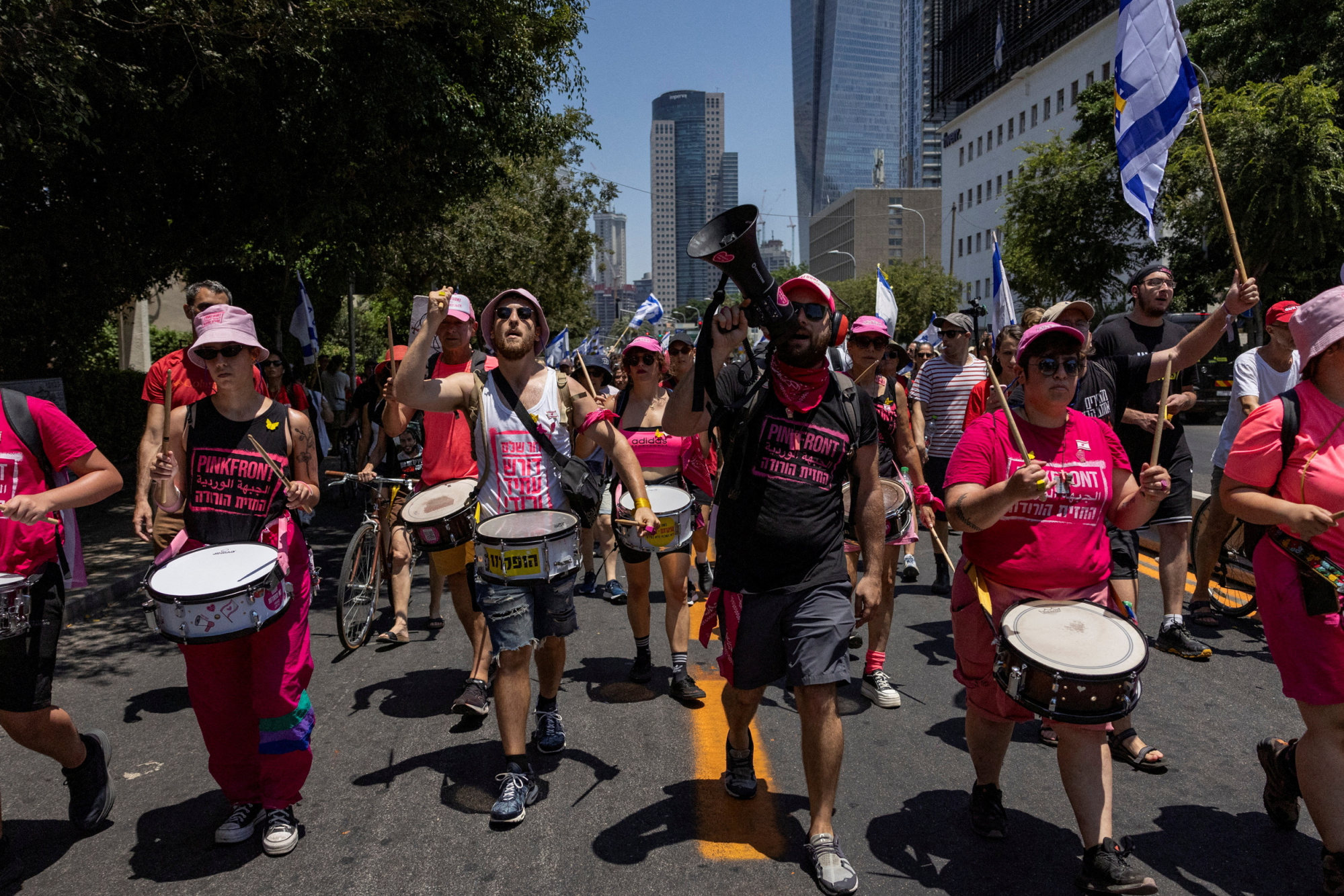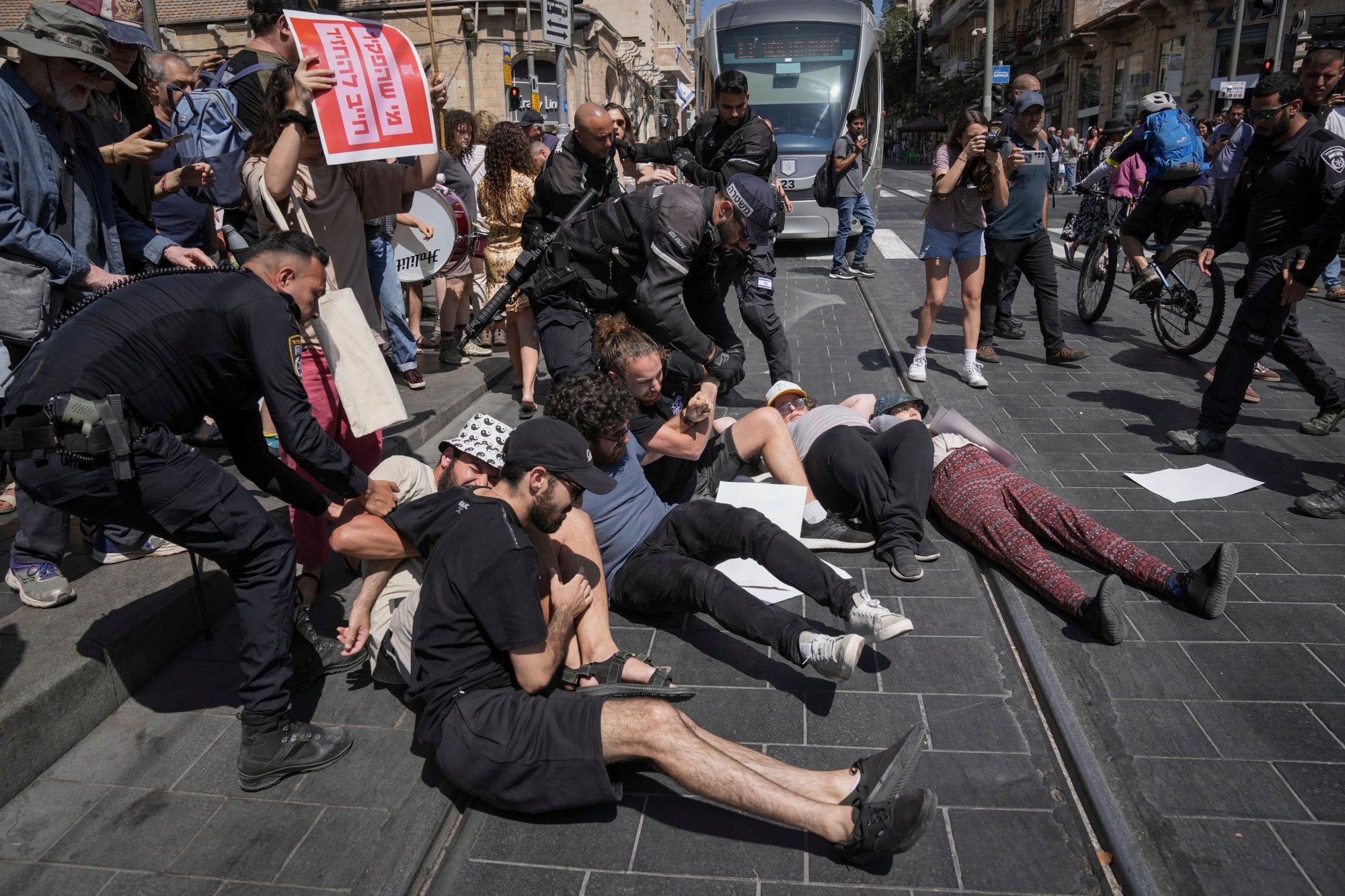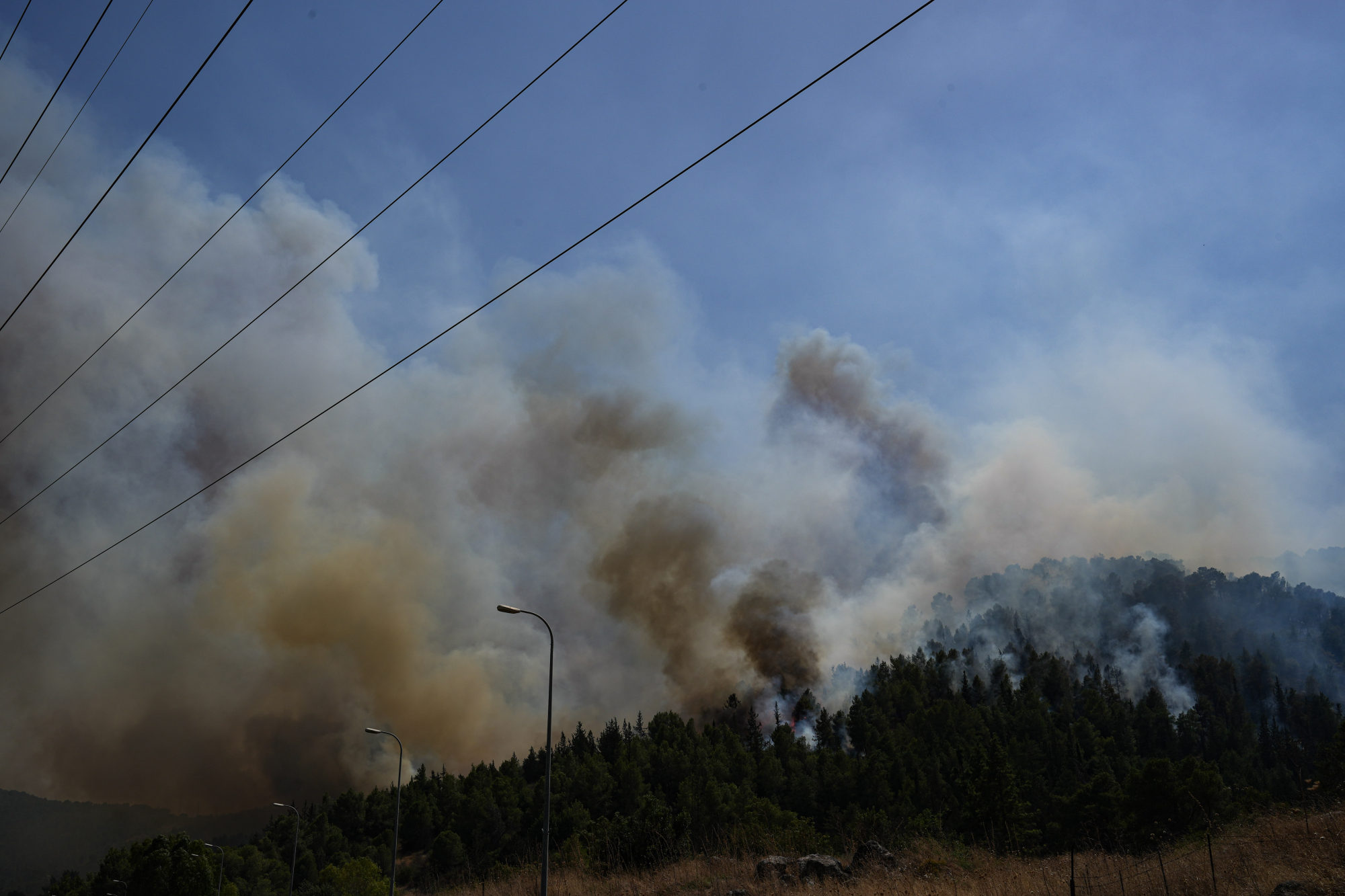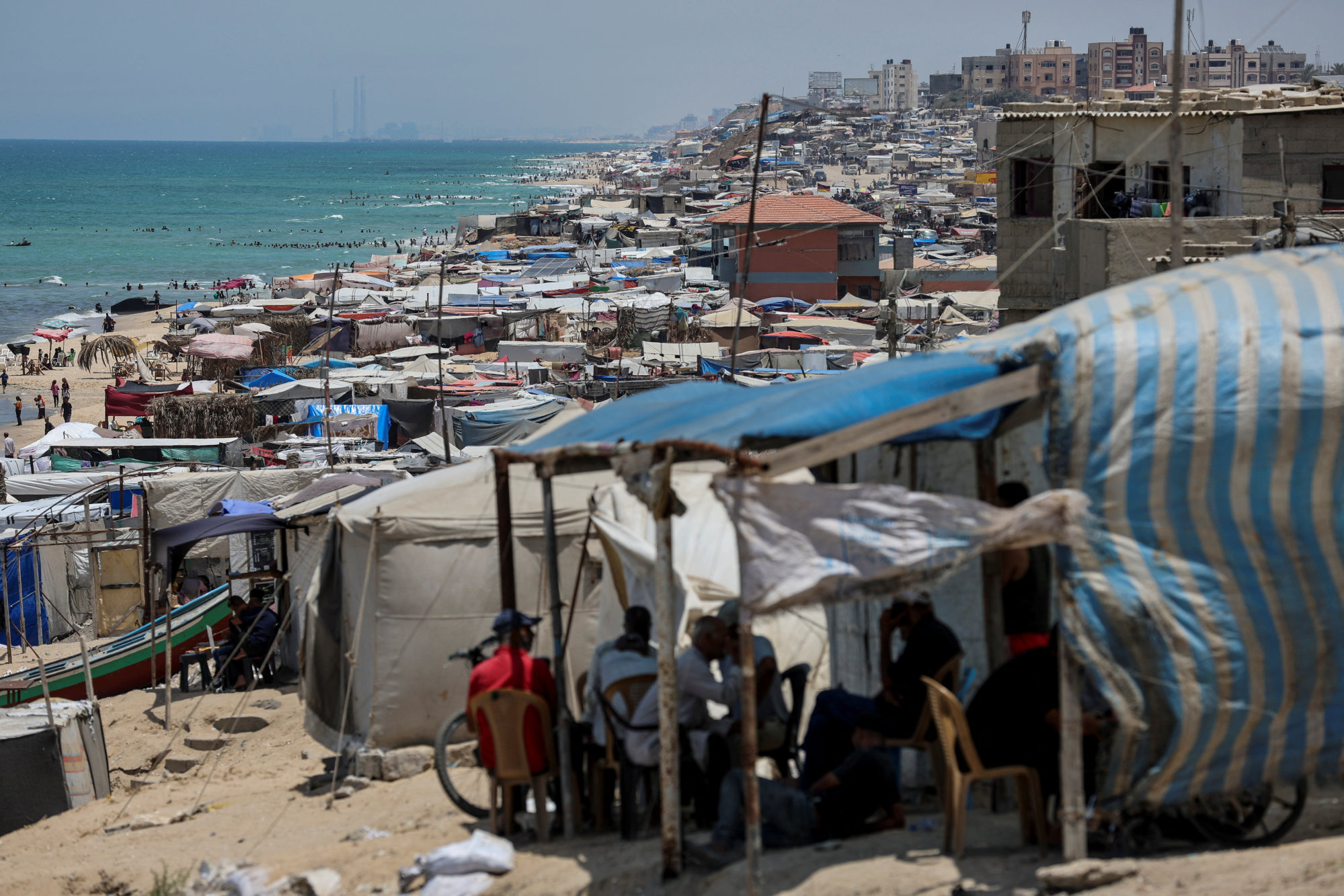Israeli protesters block highways, call for ceasefire 9 months into ongoing war
Sunday’s “Day of Disruption” started at 6.29am, the same time Hamas militants launched the first rockets towards Israel in the initial attack. Protesters blocked main roads and demonstrated outside the homes of government ministers.
Near the border with Gaza, Israeli protesters released 1,500 black and yellow balloons to symbolise those fellow citizens who were killed and abducted.

Hannah Golan said she came to protest against the “devastating abandonment of our communities by our government”. She added: “It’s nine months today, to this black day, and still nobody in our government takes responsibility.”
About 120 hostages remain captive after more than 100 hostages were released as part of a November ceasefire deal. Israel has already concluded that more than 40 of the remaining hostages are dead, and there are fears the number will grow as the war drags on.
The United States has rallied the world behind a proposal for a phased ceasefire in which Hamas would release the remaining captives in return for a lasting ceasefire and the withdrawal of Israeli forces from Gaza. But Hamas wants guarantees from mediators that the war will end, while Israel wants the freedom to resume fighting if talks over releasing the last batch of hostages drag on.
Netanyahu has also said Israel is still committed to destroying Hamas’ military and governing abilities, and that it would resume the war after a pause to release hostages.

Israel continues to battle pockets of Palestinian militants across Gaza after months of heavy bombing and ground operations that have devastated the territory’s major cities and driven most of its population of 2.3 million people from their homes, often multiple times.
Israeli air strikes overnight and into Sunday killed at least nine Palestinians, according to Palestinian officials. Six were killed in a strike on a house in the central town of Zawaida, according to the al-Aqsa Martyrs Hospital. Another strike hit a house west of Gaza City, killing another three people, according to the Civil Defence, a first-responders group under the Hamas-run government.
Also on Sunday morning, the Lebanese militant group Hezbollah said it launched dozens of projectiles towards northern Israel, targeting areas more than 30km (20 miles) from the border, deeper than most launches. A 28-year-old man was seriously wounded, Israel’s national rescue service reported. The barrage came after an Israeli air strike killed a Hezbollah militant on Saturday.
Hezbollah began launching rocket and mortar attacks after the outbreak of the war in Gaza. The range and severity of the attacks and Israel’s counterstrikes have escalated in recent weeks, raising fears of an all-out war that would have catastrophic consequences for people on both sides of the border.

Mediators from the United States, Egypt and Qatar have intensified their efforts in the past week to broker an agreement between Israel and Hamas. Hezbollah has said it will halt its attacks if there is a ceasefire in Gaza.
The compromise on Saturday by Hamas could lead to the first pause in fighting since November and set the stage for further talks, though all sides still warned that a deal is not yet guaranteed.
Washington’s phased deal would start with a “full and complete” six-week ceasefire during which older, sick and female hostages would be released in exchange for hundreds of Palestinian prisoners. During those 42 days, Israeli forces would withdraw from densely populated areas of Gaza and allow the return of displaced people to their homes in northern Gaza.

War-weary Palestinians in the Gaza Strip appeared pessimistic, after previous instances in which the two sides appeared to be closing in on a deal.
“We have lived nine months of suffering,” said Heba Radi, a displaced Palestinian woman. “The ceasefire has become a distant dream.”
The mother of six children spoke from her tent in the central city of Deir al-Balah, where she has been sheltering since they fled their home in Gaza City.
“Every day, we tell ourselves tomorrow [there will be a ceasefire],” she said, “and tomorrow will be better. And when tomorrow comes, they say [the negotiations] were postponed.”
The war has caused widespread damage in Gaza. Israeli restrictions, ongoing fighting and the breakdown of law and order have curtailed humanitarian aid efforts, causing widespread hunger and sparking fears of famine. The top UN court has concluded there is a “plausible risk of genocide” in Gaza – a charge Israel strongly denies.